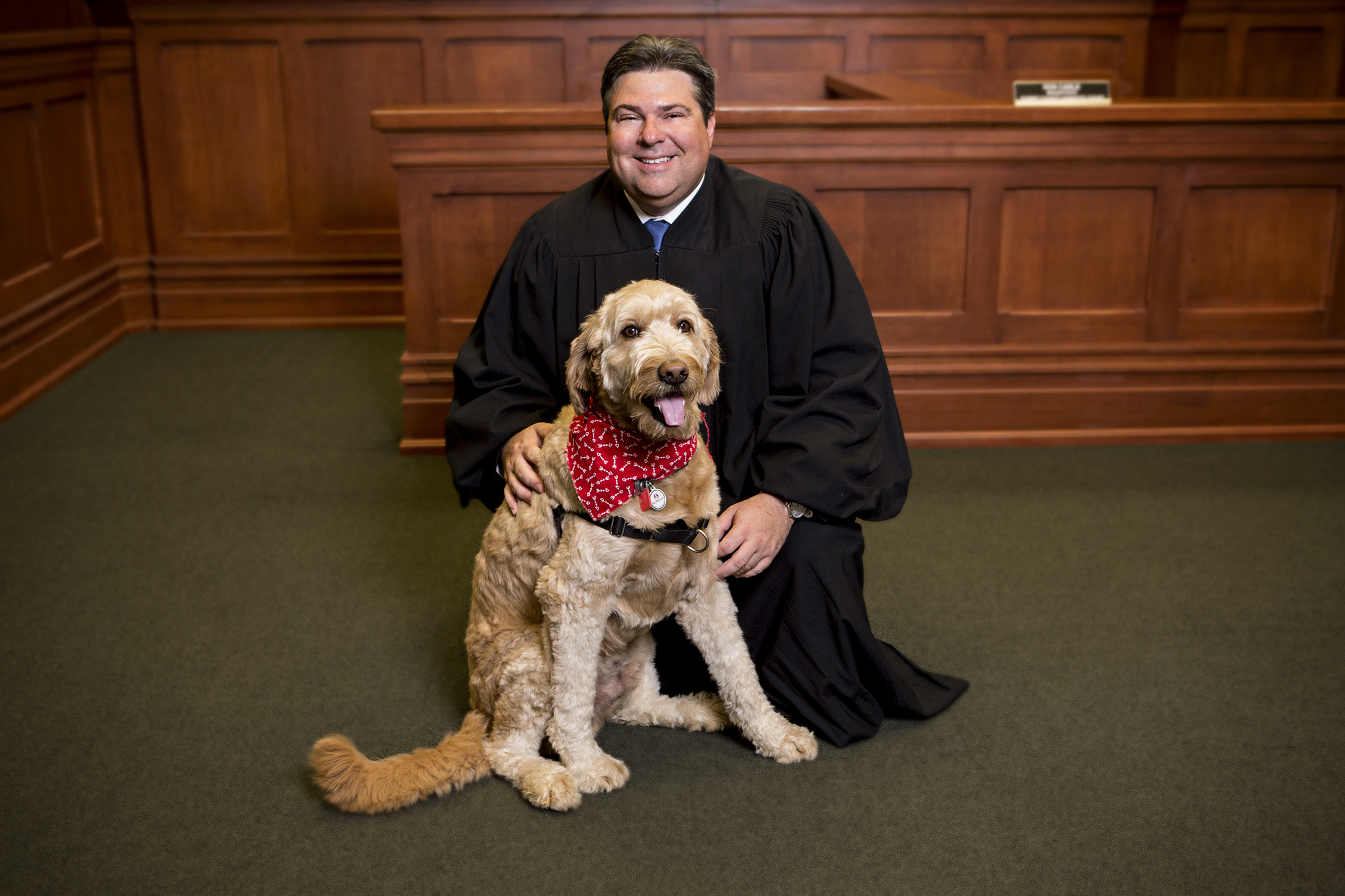This article first appeared in the Akron Legal News on February 1, 2019 by Reporter Sherry Karabin.
When Akron Municipal Court Judge Ron Cable took the bench in December 2017, he said he was determined to help improve the community and the lives of its residents.
One of the key items on his agenda was assisting victims of human trafficking, a goal which he achieved in October 2018 when he unveiled the RISE (Restore Individual Self-Empowerment) program, dedicated to helping adult female victims of human trafficking, sexual exploitation and prostitution.
“I created the program because our state has a major human trafficking problem,” said Judge Cable, who also serves as presiding judge for Akron Municipal Court’s Family Intervention Court. “I am passionate about helping identify these victims, learning about their past and guiding them as they improve their circumstances.
“Ohio law allows for expungement of certain offenses committed by human trafficking victims and I believe the RISE program will be able to make a big difference in the lives of those who’ve committed certain offenses for the financial benefit of another.”
Since the start of the RISE program, Judge Cable said the court has been working closely with the Akron Municipal Court Probation Department to identify potential participants and ensure the women enrolled are sober and have the resources necessary to change their lifestyles and/or habits impacting their lifestyles.
Those who are accepted into the 24-month program will receive a wide variety of services ranging from trauma therapy, drug rehabilitation and mentoring to housing and vocational sessions, provided by outside agencies that are partnering with the court.
One of the agencies is RAHAB (Reaching Above Hopelessness and Brokenness Inc.) Ministries, which offers safe housing, education, training, mentoring and other services to primarily female adult and juvenile human trafficking victims.
“Trafficking victims can land in the court system as a direct result of things their traffickers made them do or as a symptom of their victimization,” said RAHAB Chief Executive Officer Suzanne Lewis-Johnson, a former FBI agent who investigated human trafficking and crimes against children cases. “Predators also prey on people who are vulnerable because of drug addiction or criminal history.
“I saw that by itself prosecuting the traffickers does not stop trafficking,” she said. “It takes a community response to take women and children off the market by providing safe places and networks to surround them so they don’t get snatched back up in traffickers’ nets.”
Judge Cable first became familiar with the plight of human trafficking victims while a magistrate at Summit County Juvenile Court, where juvenile trafficking victims were often facing charges directly related to their victimization.
Many of those juveniles were able to get their lives back on track through the services provided by Restore Court, which was started by Summit County Juvenile Court Judge Linda Tucci Teodosio in January 2015.
“We look for red flags to help us identify victims of human trafficking or those at high risk of becoming trafficking victims,” said Judge Tucci Teodosio. “Since it began we have served 111 cases by providing participants with mentoring, counseling, case management, supervision and accountability.
“During the time that Judge Cable was a magistrate he developed an interest in working with human trafficking victims and came to several of our trainings,” said Judge Tucci Teodosio. “I think his RISE program will help those victims who were not identified as children.
“Studies, research and interviews with human trafficking victims have demonstrated that many adults who are charged with prostitution were trafficked while teens,” said Judge Tucci Teodosio. “The RISE program opens up other powerful options to these victims to help them move away from this lifestyle.”
While a magistrate, Judge Cable also met Judge Paul Herbert, who started the certified specialized docket CATCH (Changing Actions to Change Habits) Court in Franklin County Municipal Court in 2009.
“When I took the bench, the leaders of the Akron Municipal Court Probation Department and I observed Judge Herbert’s program, which seeks to identify and provide services to victims of human trafficking, prostitution and sexual exploitation,” said Judge Cable. “What I saw touched my heart so I decided to start something similar here in Akron.
“Prior to starting the RISE program, we also attended training on screening for victims and the services that are necessary for their success.”
RISE is voluntary and there are currently six participants, all who have been identified as human trafficking victims.
“It was necessary to place two of these victims in safe housing for them to escape their traffickers,” said Judge Cable. “When you look at this population it is clear that these women have suffered trauma beyond imagination and I think we must do something to help them.”
RISE meets every other Tuesday in Akron Municipal Court and the sessions are closed to the public to create a safe space for participants to talk about their history.
“The program is not yet certified by the Ohio Supreme Court and at this point we are only accepting females,” Judge Cable said. “We plan to apply for specialized docket status through the Ohio Supreme Court in the near future.”
A RISE advisory board has been assembled. It includes representatives from the Akron Police Department, the Akron City Prosecutor’s Office, the Rape Crisis Center, RAHAB Ministries, the Victim Assistance Program, Summa Health Traumatic Stress Center and other community organizations.
The first meeting of the board is scheduled for Feb. 7.
“A representative from the Ohio Supreme Court will attend the first meeting,” said Judge Cable. “The advisory board will be reviewing a formal program description for RISE and will make suggestions about services.”
Lewis-Johnson said there is a major need for programs like RISE.
“As RAHAB grows and replicates in other places, I hope we’ll be able to partner with other courts who want to follow the RISE program and Restore Court models, which are such an important part of ending the cycle so we can truly end trafficking in this country,” Lewis-Johnson said.






